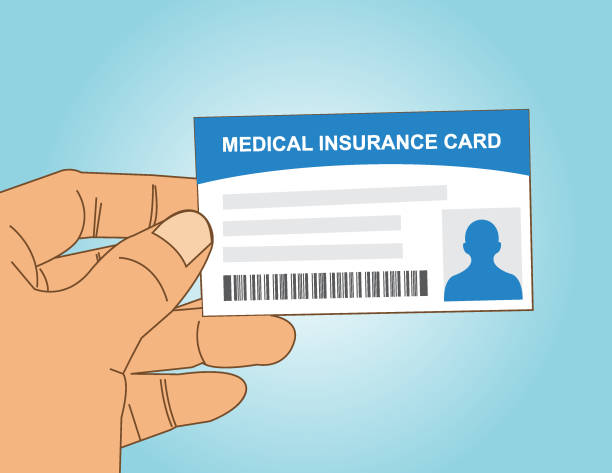Losing an insurance card can be a source of anxiety and inconvenience, particularly in situations where immediate proof of insurance is required. The question “What If I Lost My Insurance Card?” is a common concern for many individuals who rely on their insurance cards for health care, auto insurance, or other types of insurance coverage. This article aims to address this concern by providing a comprehensive guide on the steps to take if you find yourself in this situation. Whether it’s a health insurance card, auto insurance card, or any other type of insurance document, losing it can complicate situations where verification of insurance is necessary.
The loss of an insurance card doesn’t just pose a potential disruption in accessing services; it also raises concerns about personal information security. In the following sections, we will explore the immediate actions to take upon losing your insurance card, the process for obtaining a replacement, and tips to prevent such situations in the future. Understanding how to handle the loss of an insurance card is crucial in minimizing stress and ensuring continuous access to insurance services.
What If i Lost My Insurance Card?
When you realize that you’ve lost your insurance card, it’s important to act promptly. Here are the key steps to follow:
1. Report the Loss to Your Insurance Provider
- Immediate Notification: Contact your insurance provider as soon as you notice your card is missing. Most insurance companies have customer service hotlines for such situations.
- Request for Replacement: Ask for a replacement card. Many insurers can provide a digital copy of the card via email or through their online portal as a temporary solution while you wait for a physical card.
2. Accessing Insurance Services Without a Card
- Temporary Proof of Insurance: Use the digital copy or a temporary card provided by your insurance company if you need to access services before the replacement arrives.
- Verification Process: Healthcare providers and other entities can often verify your coverage directly with the insurance company if you provide necessary details like your policy number and personal identification.
3. Safeguarding Personal Information
- Potential Risks: A lost insurance card can be a source of personal information for identity theft. Monitor your insurance statements and health records for any unauthorized activity.
- Informing Healthcare Providers: Notify your healthcare providers about the lost card so they can be alert to any fraudulent use of your insurance information.
4. Preventive Measures for the Future
- Digital Backup: Keep a digital copy of your insurance card on your phone or in a secure cloud storage as a backup.
- Safekeeping Original Documents: Be cautious about where and how you carry your insurance card to prevent loss or theft.
Managing Without Your Insurance Card
In the interim period between losing your card and receiving a replacement, it’s crucial to know how to manage:
- Communication with Providers: Inform healthcare providers or relevant entities about the situation; most are understanding and can make accommodations.
- Proof of Insurance: Use temporary proofs of insurance provided by your insurer for any necessary verifications.
Conclusion: Navigating the Loss of Your Insurance Card
Losing your insurance card can be a challenging experience, but by taking prompt and appropriate actions, you can mitigate any potential problems and ensure continued access to your insurance services. To recap, the essential steps to take in the scenario of “What If I Lost My Insurance Card?” include promptly reporting the loss to your insurance provider, requesting a replacement, and utilizing temporary proof of insurance. Additionally, being vigilant about your personal information and taking preventative measures for the future are key to avoiding similar situations and protecting against identity theft.
Key Points to Remember
- Immediate Reporting: As soon as you realize your insurance card is lost, contact your insurance provider to minimize any risk of misuse and expedite the process of obtaining a replacement.
- Use of Temporary Proofs: Leverage digital copies or temporary cards provided by your insurer to continue accessing healthcare or other services without interruption.
- Communicate with Service Providers: Keep your healthcare providers or any relevant entities informed about the loss of your card to avoid any issues during the verification process.
- Monitor for Fraudulent Activity: Regularly check your insurance statements and health records following the loss of your card to ensure there are no unauthorized uses of your insurance.
Additional Tips for Prevention and Safety
- Digital Backup: Keeping a digital copy of your insurance card on your phone or in secure online storage can be a lifesaver in such situations.
- Safe Storage: Be mindful of how and where you store your insurance card. Consider carrying it in a secure place, separate from your wallet, to reduce the risk of loss or theft.
- Regular Review: Periodically review your insurance documents, including your insurance card, to ensure they are up-to-date and securely stored.
In Conclusion, while losing your insurance card can be an inconvenience, understanding the steps to take can help you navigate the situation with minimal stress. By staying informed, taking immediate action, and planning ahead, you can ensure that the loss of your card has a minimal impact on your access to insurance services and your personal information security. Remember, your insurance provider is there to assist you, and with the right approach, you can quickly overcome the challenges of a lost insurance card.



